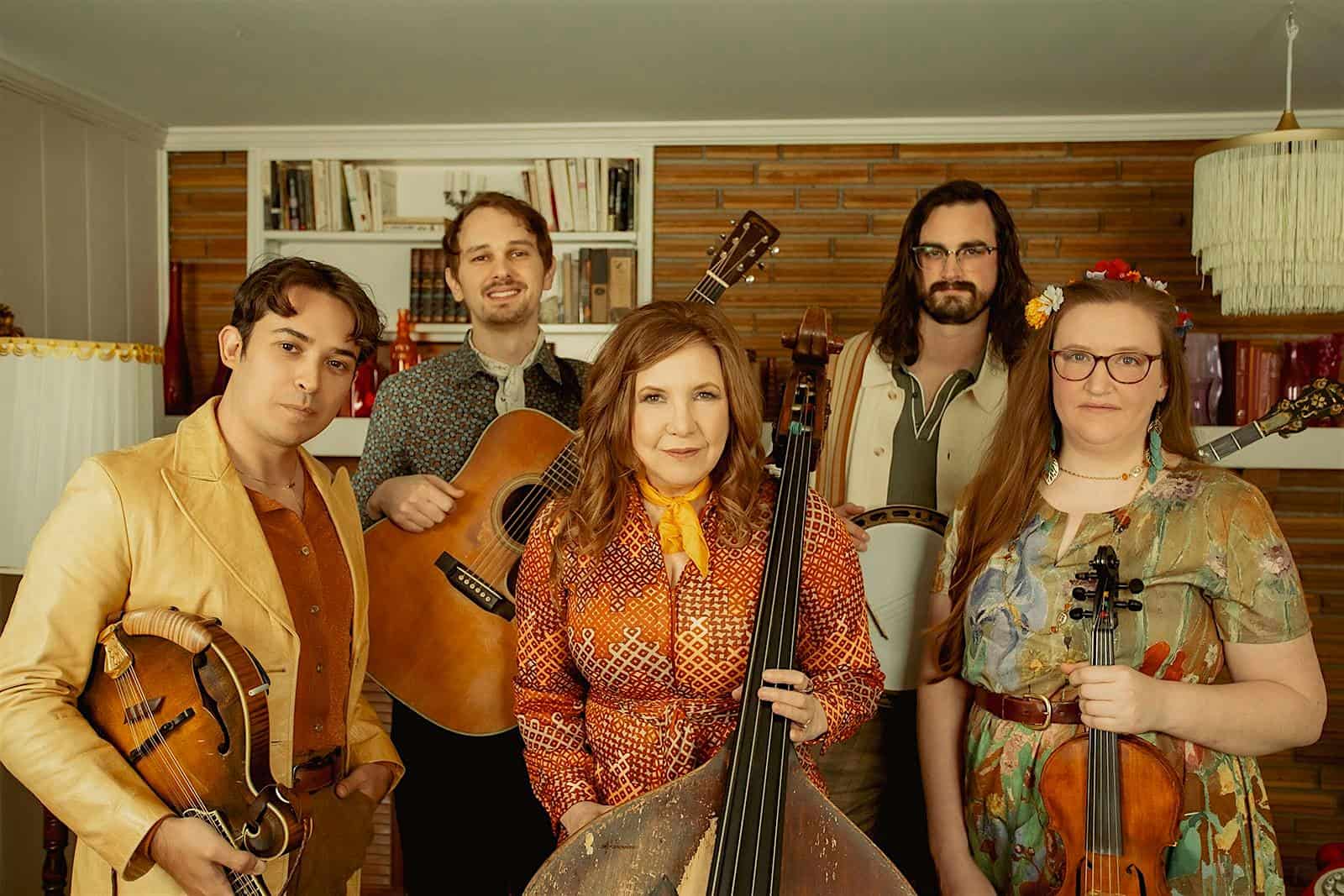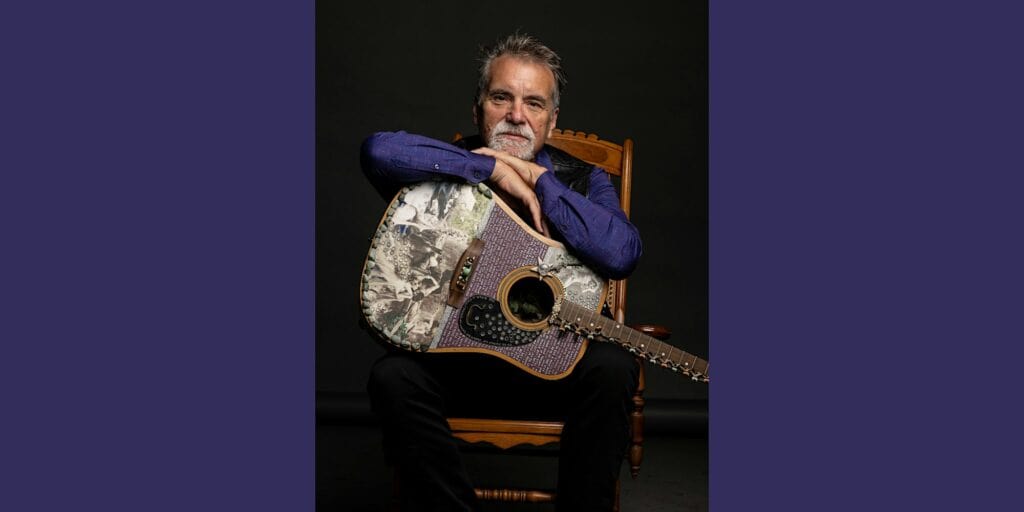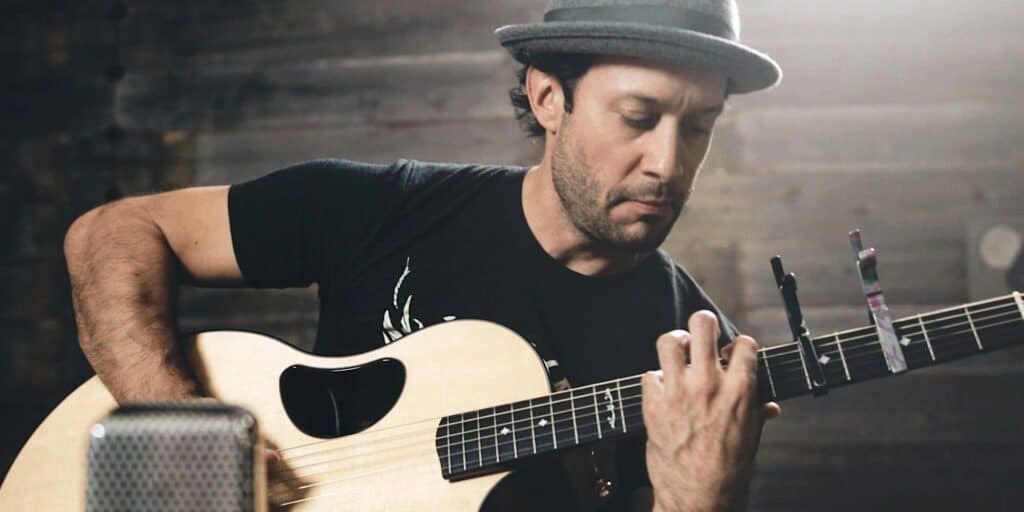
- This event has passed.
Missy Raines and Allegheny Presented by KGNU
April 21 @ 7:00 pm

About Missy Raines and Allegheny
Missy Raines is a trailblazer in bluegrass music. On her newest release Highlander, the bassist/ vocalist/songwriter returns to her bluegrass roots with a musical homage to the peaks and valleys of her native West Virginia. Working again with producer Alison Brown, she delivers a set of 10 songs featuring her touring band Allegheny and including guest appearances from Laurie Lewis, Dudley Connell, Danny Paisley, Kathy MaKea, Michael Cleveland, Rob Ickes, Bronwyn Keith-Hynes, Darol Anger, Shad Cobb and Alison Brown. Raines explains: “Making this record and having this band has been sort of a homecoming. I’m at a point in my life where I’ve been able to look back at what I’ve gone through, what I’ve done, and the path I ultimately wanted to take.”
That path has taken Raines on a long and adventurous musical journey which has been informed by the Southern Appalachian and Mid-Atlantic bluegrass of her youth. As a child and young teen, Raines soaked up the sounds of The Country Gentlemen, The Seldom Scene, The Johnson Mountain Boys, and the other neo-progressive groups that propelled bluegrass music forward in the 70s. In the early years of her career, she spent hours learning from and playing with many first-generation on bluegrass legends and traveled extensively throughout the mid-Atlantic region. She says: “I can almost just go back and rely on those intrinsic things I learned as a 15-year-old in a field at a bluegrass festival — tapping into how I felt back then, and how I still feel today about this music.”
Raines brings that intrinsic knowledge of the music to the forefront on her new project. In fact, she says that the Johnson Mountain Boys helped inspire the sound of her touring band Allegheny who perform brilliantly on each of the album’s 10 tracks. Tristan Scroggins (mandolin, vocals) kicks off the album on the Gary Ferguson original “Listen to the Lonesome Wind,”, a grooving, mid-tempo bluegrass track. Eli Gilbert (banjo) and Ellie Hakanson (fiddle, vocals) add incredible drive to “Fast Moving Train,” a new train song that Raines calls a ‘rare gem’ which sounds like it could have come from Jimmie Rogers’ canon. Ben Garnett (guitar, vocals) adds his def rhythm and lead guitar throughout, shining on interplay with Raines’ bass on the instrumental “Panhandle Country” and “Looking to You,” a Raines original reminiscent of her work with The New Hip in the early 2000s. Reaching back to her earliest days, she tapped long-time friend Dudley Connell (Johnson Mountain Boys lead vocalist/guitarist) to sing a duet with her on “Ghost of a Love,” the album’s third single. Raines grew up around The Johnson Mountain Boys and jammed with them often in the early days of the band. She sites their sound as one the major influences on Allegheny’s sound. With its classic bluegrass fast-waltz feel, Raines says the track was a perfect feature for Dudley Connell’s vocals.
The iconic Danny Paisley duets on “These Ole Blues” which Raines discovered on a recent LoreKa Lynn album. Reinterpreting it with a bluegrass shuffle feel makes the song sound like one that’s been a bluegrass standard for years. Raines explains: “Danny was a natural choice for this song because he has an edge and a soulfulness to his voice that cuts deep, and because his voice defines a lot of what bluegrass singing is to me. Danny’s voice and sound are part of the soundtrack of my earliest influences.”
Raines turns her musical attention to the timely topic of opioid addiction in the original “Who Needs a Mine?,” confronting a crisis that has hit her home state harder than any other state in the Union. Together with fellow West Virginian Kathy MaKea on guest vocals, the two vocalists channel the spirit of Hazel Dickens and drill into the deep emotion of despair surrounding this issue, asking, “Who needs a mine to kill us dead when a little pill works fine instead?” Raines explains: “The well-planned and completely targeted war waged by the pharmaceuticals and the FDA on remote and isolated parts of the country, specifically West Virginia, where most jobs involve hard labor and injuries are higher than in most states inspired me to co-write this song with friend and fellow songwriter Randy BarreK. Gaining an in the state addicted to painkillers made a lot of money for a few people. Maybe it’s because I’m an ar?st, but the best of me comes out when I feel deeply about something.”
Raines tapped Laurie Lewis, California-based bluegrass pioneer, to join her on the Nathan Bell penned song “I Would Be a Blackbird.” Although Lewis and Raines grew up on separate coasts, Raines says Lewis’s music was an influence from an early age, as well as the example she set as a band leader, songwriter, and vocalist. Adorned by Eli Gilbert’s clawhammer banjo and Ellie Hakanson’s cross tuned fiddle, the track has the feel of an old-time song that could be a century old.
Taken as a whole, Raines’ lifetime spent steeped in bluegrass is on full display on Highlander. Beyond the impressive array of guest musicians and the outstanding performances of her bandmates, it’s Raines’ extensive knowledge of and deep passion for bluegrass music that make Highlander a bluegrass album for the ages. And, for this musical adventurer, it’s a love letter of sorts to the music and musical community that shaped her. “I love so many different kinds of music,” Raines says. “But I cannot describe how bluegrass affects me, and why it affects me so deeply.”





